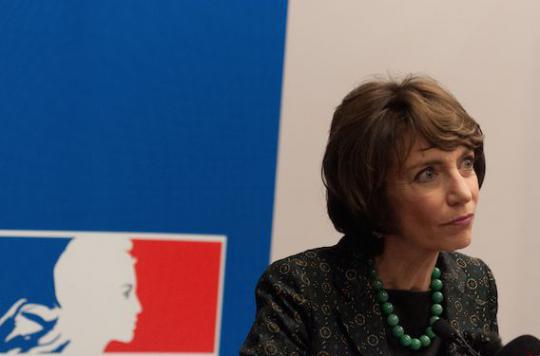Marisol Touraine challenged Thursday the method and the figures put forward by the UFC-Que Choisir in its investigation into access to city doctors and excess fees.

In its second inventory of access to healthcare in France, the UFC-Que Choisir did not go dead hand. She does not hesitate to define the situation as an “inexorable worsening of the health divide”. For the users’ association, the restricted access of the French to a general practitioner, a pediatrician, a gynecologist or even an ophthalmologist has two explanations.
On the one hand, the geographical distribution of doctors is deteriorating, favoring the appearance of medical deserts. On the other hand, the Health Insurance has not succeeded in controlling the excess fees leading to “an endless drift”. A criticism rejected by the National Health Insurance Fund. Ditto for the Minister of Health for five years who reacted.
This Thursday, Marisol Touraine challenged the method and the figures put forward by the UFC-Que Choisir. The investigation contains “absolute untruths,” she said. “Regarding the overruns, it is wrong to say that, for the French, the period 2012-2016 results in an increase in the overruns to be paid,” she insisted.
The excess fees in question
In its investigation, the UFC-Que Choisir nevertheless affirmed that more liberal doctors were no longer charging Social Security rates and that the average amount of excess fees in four years had increased. To assert this, it relied on the most frequently requested rate for a simple consultation according to the data available in the health insurance directory.
The association measured “the evolution of overruns from the progression of their overall annual amount”, which “is not the approach that best reflects reality”, since it “does not measure the expenditure. ultimately borne by the insured, ”replied the Health Insurance in a press release.
The minister disputes the figures
“The number of doctors has increased and those working in health centers have not been taken into account,” adds the tenant of Avenue Duquesne (Paris). Health Insurance has also challenged the financial cost of the Care Access Contract (CAS), intended to regulate excess fees. The UFC-Que Choisir estimated that “for 59 million euros of overruns avoided by its action in 2014, the device cost 470 million euros in compensation granted to doctors”.
According to health insurance figures, the financial impact of the measure only, on sector 2 doctors (free fees) signatories of a CAS, is estimated at 100.2 million euros.
The Fund thus argues that it is not the doctors in sector 2 who have cost the most in the past three years. On the contrary, the Health Insurance has supported practitioners in sector 1 who respect the consultation rates in force, in particular general practitioners.
.
















